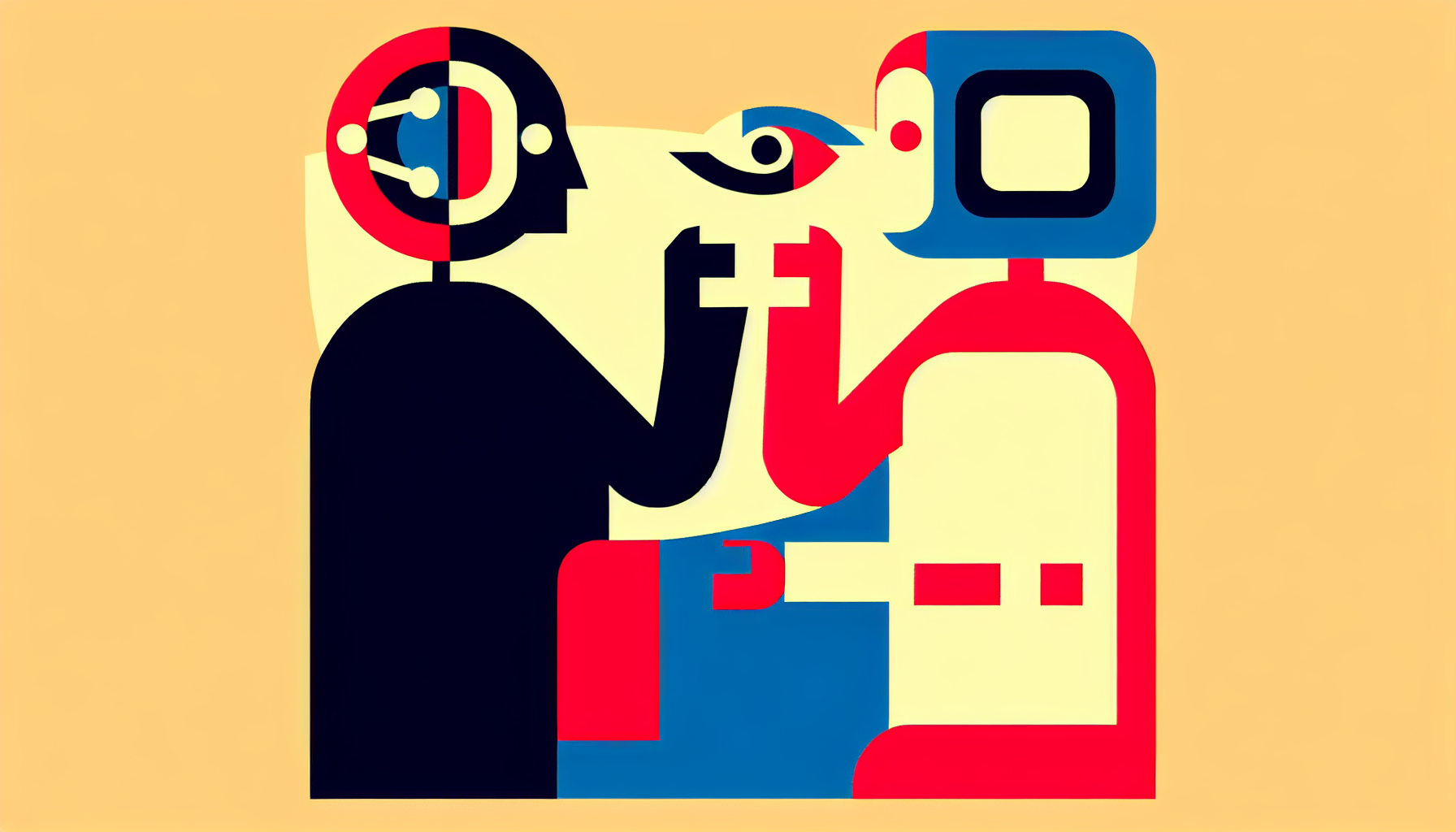In the grand tapestry of human history, few threads have woven a narrative as complex and transformative as the rise of artificial intelligence. From spearheading technological revolutions to engaging in thought experiments that stretch the limits of human introspection, AI has taken center stage not just as a tool, but as a partner in dialogue about our ethical compass. As we stand at the intersection of technology and humanism, the question emerges: what role does AI play in shaping our moral philosophy?
A Virtual Mirror for Moral Introspection
Consider AI as a mirror that not only reflects our values but also magnifies them, exposing cracks and blemishes we might prefer to overlook. In this way, AI challenges us to scrutinize our ethical frameworks. For instance, the algorithms that curate content on social media inadvertently spotlight the biases embedded within them, forcing us to confront uncomfortable truths. By highlighting these biases, AI can serve as a catalyst for moral growth, prompting society to reevaluate and refine its principles.
Think of it as the Socratic method with a digital twist. Instead of a philosopher asking probing questions to reveal ignorance, AI systems exhibit behavioral quirks that compel us to question our assumptions about fairness, accountability, and transparency. In essence, AI nudges us to engage in moral introspection, albeit not always willingly.
From Moral Agents to Moral Patients
The relationship between humans and AI frequently provokes the question of agency. If AI is to play a role in moral philosophy, can it function as a moral agent—a being capable of making ethical decisions—or is it better understood as a moral patient, an entity towards which moral responsibilities are owed? While some may argue that true agency is a distant goal reserved for the realm of science fiction, the implications of treating AI as a moral patient invite fascinating dialogue.
Consider an AI designed to assist individuals with disabilities. Does our ethical obligation extend to ensuring it operates equitably, free from discriminatory biases? If an AI voice assistant captures our consciousness, what is our moral responsibility regarding data privacy? The conversation transitions from science fiction into the ethical baselines of our everyday interactions with technology.
In this light, AI becomes a sort of ethical tuning fork, resonating with the nuances of moral obligation that ripple through the fabric of everyday life.
AI and the Evolution of Ethical Frameworks
As AI advances, so must our ethical frameworks evolve. Concepts like the trolley problem, long a staple in the toolkit of ethicists, have found new relevance in the context of autonomous vehicle decision-making. Yet these scenarios barely scratch the surface of moral complexity.
For instance, AI systems used in healthcare might say, “I can save this patient or that one,” echoing age-old ethical dilemmas but at machine speed. The challenge is not just to program an ethical AI, but to understand and articulate the values that guide its decisions. The debate over these issues encourages humanity to break new ground in ethical theory—prompting questions such as how to weigh diverse and sometimes conflicting values, how to ensure equitable treatment of all individuals, and how to define a fair distribution of outcomes.
It’s akin to watching moral philosophy itself undergoing a sort of Darwinian evolution, adapting to thrive in an environment increasingly dominated by algorithms and data.
The Democratic Implications of AI-driven Moral Philosophy
AI’s role in shaping human moral philosophy also has profound implications for democracy. In our quest to imbue AI with ethical decision-making skills, we consciously or subconsciously project the values of those in power, potentially overlooking marginalized perspectives. This is both an ethical quandary and a democratic challenge.
Creating an AI system that genuinely reflects a pluralistic society requires an inclusive dialogue where diverse voices contribute to ethical programming. To neglect this is to risk a future where AI exacerbates existing inequalities rather than mitigates them. Hence, the design of ethical AI becomes a democratic project, requiring active participation from all sectors of society, much like the formation of a constitution.
Imagine a town hall where every citizen resided in computational form. The dialogues and debates that emerge would not just reflect our current societal norms but actively shape them. It’s like hosting a town hall where everyone’s a philosopher, discussing the abstract with the urgency of the here and now—possibly with a coffee cup emblazoned with Descartes’ “I think, therefore I am” in binary code.
Conclusion: Blurring Boundaries and a Call to Action
As AI technology continues to evolve and integrate into the daily fabric of human life, the boundaries between the digital and moral realms blur. AI is not an ethical oracle; rather, it serves as a sounding board for our ethical deliberations—a prompt to continually question and reshape our moral understanding.
While AI may not solve ethical dilemmas, its presence in our lives insists that we not only hone our ethical reasoning but also apply it more equitably and inclusively. It pushes humanity to adapt, evolve, and strengthen the moral frameworks that define our shared existence.
In doing so, AI challenges us to live up to our potential not just as thinkers, but as stewards of moral wisdom—tasking each of us with the responsibility to lead, not follow, in the quest for a future that harmonizes technology with the better angels of our nature. After all, who better to tackle the ethics of AI than the very beings who created it, hopefully, without the need for a helping hand from an algorithmic Socrates?

Leave a Reply